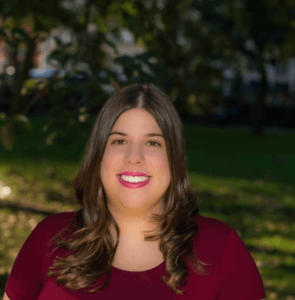Understanding Mindfulness Practice:
Mindfulness is talked a lot about these days. It has been shown that utilizing mindfulness practice has tremendous benefits on both physical and mental health. But what does it been to be mindful? In the simplest definition, being mindful means living in the present and being aware. Essentially, to be mindful means focusing on what you experience through your five senses. However, there is more to mastering the mindfulness skill than that. A big part of mindfulness practice is being non-judgmental.
Let’s Define Judgments:
In order to understand what it means to be judgmental vs. non-judgmental, we need to understand what it means to make a judgment. There are two types of judgments; one is necessary and the other is what we are trying to eliminate as a mindfulness practice.
- Discriminating Judgments: These types of judgments discern or analyze information about something based on facts: whether two things are the same or not, whether certain standards are met, etc. These kinds of judgments are necessary to make decisions. Example of discriminating judgments: a teacher when grading, a judge when giving a court ruling, a swimmer when deciding if the pool is deep enough to dive into, the general public when checking the weather to see how to dress.
- Evaluative Judgments: These types of judgments label something as good or bad, valuable or not, and the like. Evaluations are not based on fact; they are what we add based on our opinions and biases. Discriminating judgments can become evaluative when we exaggerate and add to the facts. This is the kind of judgement we want to get rid of.
Why is the mindfulness skill of being non-judgmental beneficial to our mental health?
- Effect on our relationships: Judging people does not make any difference in outcomes; it usually doesn’t lead people to change their behaviors. Even when you have constructive feedback for someone, it is the not most effective to present it in a judgmental way. Think about how you feel when you are judged. More often than not, the result is defensiveness, avoidance and/or retaliation. Additionally, the more “judgmental” you are, the less likely you will find satisfaction in your relationships. When you have this mindset, the focus is more on the negative, which creates conflict and tension within existing relationships and less openness to new people.
- Effect on our emotions: When we add evaluations of good or bad it can change our emotional reaction and mood. Think about how people often evaluate the weather. Instead of just discerning what proper attire would be, people tend to judge it as being nice or gross out. Whatever the judgment, it often has a strong impact on how we feel the rest of the day. If the weather is “gross,” that can put people into a bad mood. On the other hand, if the weather is nice, that can put people into a good mood. But why should our wellbeing be dependent on something so much out of our control? Rather then letting such external factors impact us so strongly, we can take control of our emotional state by eliminating these kinds of judgments.
- Effect on our decisions: Sometimes adding evaluations clouds our judgment so that we do not come to most effective solution for ourselves. For example, let’s say you were looking to buy a house. When shopping around, if you just ask “is this a good house or a bad one,” you lose sight of what it is you are actually looking for. You can make a more informed choice if instead you ask things like “does this house need a lot of repairs,” “is this a house I will like living in,” “does this house have enough bedrooms and bathrooms for my needs?”
The bottoms line is, when we are in the habit of making evaluating judgments, it can lead to unnecessary stress and anxiety and negatively affect our mental health. Therefore, learning to be non-judgmental is a valuable mindfulness skill.
How can we start shifting to the Mindfulness Practice of Being Non-judgmental?
- Let go of good and bad descriptors. Stop evaluating people, their behaviors, and events in this way. You don’t want to just replace good and bad with other synonymous words; instead, stick to statements of what is. A good rule of thumb is to focus on what you are experiencing through your 5 senses.
- Stop thinking in terms of “shoulds”. This means no longer defining or demanding how the world should or shouldn’t be. It means accepting reality as it is and not saying things should be different than what they are. That kind of thinking doesn’t change anything; it just puts you into a negative headspace. Instead, replace “shoulds” with feeling and desire words like “want” and “wish.”
- Remember being non-judgmental does not mean approval, denying consequences, or not speaking up about our wants and needs. It’s about framing things in a way that separates the facts from our emotional and subjective interpretations.
- Don’t forget that your non-verbal communication and manner can be judgmental as well. Notice any judgmental facial expressions, postures, and tones.
- Observing and documenting behavior is a proven effective behavior changing strategy. Therefore, observe when judgmental thoughts go through your mind and record the amount each day.
- When you notice judgmental thoughts, tone, or body language, think how you can change it into a non-judgment. Write both statements down and see the difference. When you do this you can also find patterns for when you tend to be judgmental, allowing you to be more aware of changing it.

Alyssa Mairanz, LMHC, DBTC
Alyssa Mairanz provides counseling and therapy services for life transitions, relationship issues, self esteem, depression, anxiety, and DBT and Psychodynamic therapy in a NYC group practice in the Flatiron District near Madison Square Park. She also serves the Village, Chelsea, Union Square, the Financial District and the surrounding areas.
Empower Your Mind Therapy’s mission is to helps our clients build the life they want and find more happiness and satisfaction.



